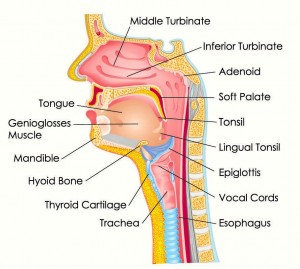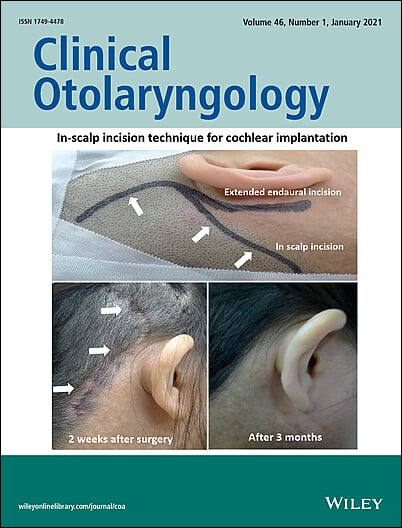Surgical ENT Solutions Explained: When Is It Recommended?
Wiki Article
Exploring the Field of Otolaryngology: What to Anticipate When You Consult an ENT
Otolaryngology, commonly referred to as ENT, incorporates the medical diagnosis and therapy of throat, nose, and ear conditions. For those experiencing related issues, getting in touch with an ENT expert can give clearness and alleviation. Recognizing what to anticipate during such consultations is essential for efficient interaction and care. This overview will lay out essential aspects of the ENT experience, including usual factors for sees and the processes associated with diagnosis and therapy.
Recognizing Otolaryngology: A Summary
Otolaryngology, frequently described as ENT (Nose, ear, and throat) medicine, is a specialized branch of medication that focuses on the diagnosis and therapy of problems influencing these important areas of the body. This area encompasses a wide variety of disorders, consisting of those pertaining to hearing, equilibrium, breathing function, and speech. Otolaryngologists are educated to take care of both clinical and surgical treatments, utilizing sophisticated methods and innovations. Their proficiency extends beyond conventional ailments, attending to issues such as allergic reactions, sinus infections, and hearing loss. Furthermore, they play a crucial function in the management of head and neck cancers, giving detailed care tailored to private patient requirements. On the whole, otolaryngology remains essential for preserving health and lifestyle in affected people.Usual Factors to See an ENT Expert
Lots of people seek the knowledge of an ENT specialist for a selection of factors, showing the diverse nature of conditions that influence the ear, nose, and throat. Usual issues consist of chronic sinusitis, which commonly results in persistent nasal congestion and facial pain. Allergic reactions and their linked signs and symptoms, such as sneezing and itching, additionally trigger check outs to these specialists (ENT). Hearing loss, whether steady or abrupt, is an additional significant factor for consultation. On top of that, individuals might seek analysis for throat conditions, consisting of consistent hoarseness or ingesting problems. Rest apnea, identified by interrupted breathing during rest, is frequently attended to by ENT experts as well. Each of these problems highlights the value of specialized care in taking care of complex ENT-related health concerns
Planning for Your ENT Appointment
When getting ready for an ENT appointment, it is vital to collect relevant info and take into consideration any kind of particular concerns. Individuals need to compile a detailed medical history, consisting of previous ear, nose, or throat problems, surgical treatments, and current medications. Recording signs and symptoms-- such as frequency, duration, and severity-- can offer useful understandings for the ENT expert. In addition, people must prepare a checklist of concerns they want to ask, making sure that all worries are attended to during the browse through. Bringing along any kind of relevant clinical records or examination outcomes can additionally assist the ENT in understanding the person's problem. Finally, clients should confirm their consultation details, including date, area, and time, to minimize any type of final complication. Proper preparation can boost the efficiency of the appointment and bring about far better end results.What to Anticipate During the Appointment
As the examination starts, the person can expect to take part in a detailed discussion with the ENT expert about their signs and symptoms and clinical history. The expert will ask about the period, frequency, and seriousness of signs and symptoms such as hearing loss, nasal congestion, or sore throat. Furthermore, the person's previous medical problems, medicines, and any type of pertinent household background will certainly be assessed, aiding the specialist website in creating a full understanding of the patient's health. The ENT might likewise inquire about lifestyle aspects, such as exposure to toxic irritants or irritants. This open dialogue establishes a foundation for the consultation, ensuring that the individual's worries are attended to and setting the phase for any type of essential assessments or referrals for therapy.
Analysis Examinations and Procedures in Otolaryngology
A variety of analysis tests and procedures are vital in otolaryngology to properly evaluate and identify problems impacting the throat, nose, and ear. Usual tests include audiometry, which determines hearing function, and tympanometry, assessing center ear stress. Nasal endoscopy allows visualization of the nasal passages and sinuses, while laryngoscopy checks out the throat and vocal cables. Imaging techniques, such as CT scans and MRIs, provide in-depth sights of head and neck structures. Allergy screening may also be carried out to identify triggers for sinus or respiratory issues. These diagnostic devices make it possible for ENT professionals to develop a thorough understanding of clients' conditions, guaranteeing tailored and efficient management strategies. Appropriate diagnosis is important for successful treatment outcomes in otolaryngology.Therapy Alternatives Supplied by ENT Specialists
ENT specialists supply a variety of treatment options customized to resolve specific problems influencing the throat, ear, and nose. These treatments vary from conventional methods, such as medicine and lifestyle adjustments, to even more intrusive treatments. Allergic reactions might be handled with antihistamines or immunotherapy, while chronic sinusitis may require nasal corticosteroids or sinus surgical treatment. For hearing loss, ENT experts commonly suggest listening devices or surgical treatments like cochlear implants. In cases of throat disorders, choices can consist of speech therapy or surgeries to remove obstructions. Additionally, they might provide advice for taking care of rest apnea, including using CPAP gadgets or medical treatments. On the whole, the goal is to enhance patients' lifestyle through individualized treatment and effective therapy methods.When to Look For Follow-Up Care With an ENT
Acknowledging when to look for follow-up treatment with an ENT specialist is essential for taking care of continuous symptoms or complications connected to ear, nose, and throat problems. Individuals must take into consideration arranging a follow-up appointment if signs and symptoms linger regardless of preliminary therapy, such as persistent ear discomfort, nasal blockage, or throat pain. Modifications in hearing, equilibrium issues, or unusual nasal discharge may also necessitate more examination. In addition, if a client experiences side results from recommended medicines or has undertaken an operation, follow-up care is very important to monitor recovery and attend to any concerns. Timely consultations can ensure effective monitoring of conditions, protect against possible problems, and give comfort relating to one's health and wellness. Looking for follow-up treatment advertises proactive health and wellness monitoring in otolaryngology.Frequently Asked Concerns

What Qualifications Should I Try to find in an ENT Professional?
When looking for an ENT specialist, one should search for board accreditation, relevant experience, and strong person reviews. In addition, reliable communication skills and a thoughtful technique can considerably enhance the general treatment experience.Exactly how Do I Pick the Right ENT for My Needs?
Choosing the appropriate ENT specialist involves evaluating their qualifications, experience, and client evaluations (Voice). It is important to contemplate their communication design and technique to treatment, ensuring they line up with the person's certain health and wellness demands and preferencesExist Any Type Of Threats Associated With ENT Procedures?
The risks associated with ENT procedures may include infection, blood loss, anesthesia issues, and prospective damages to bordering structures. Clients ought to review these risks with their physician to understand private worries and guarantee informed choices.How Can I Handle Anxiousness Before My ENT Visit?
To manage stress and anxiety before a visit, people can practice deep breathing exercises, visualize positive results, prepare questions beforehand, and look for assistance from close friends or household, cultivating a sense of reassurance and calmness.What Should I Do if I Experience Adverse Effects From Therapy?
The individual ought to without delay report them to their healthcare company if side impacts from therapy occur. Modifications to therapy or additional interventions might be needed to guarantee safety and security and efficiency in managing their problem - ENT Clinic. As the examination starts, the patient can anticipate to involve in a thorough conversation with the ENT specialist regarding their signs and clinical history. These analysis tools enable ENT professionals to develop a comprehensive understanding of patients' problems, ensuring tailored and effective monitoring plans. ENT professionals supply a range of therapy alternatives tailored to attend to details problems affecting the nose, throat, and ear. When looking for an ENT expert, one ought to look for board accreditation, appropriate experience, and strong client evaluations. Selecting the right ENT specialist involves examining their certifications, experience, and person testimonialsReport this wiki page